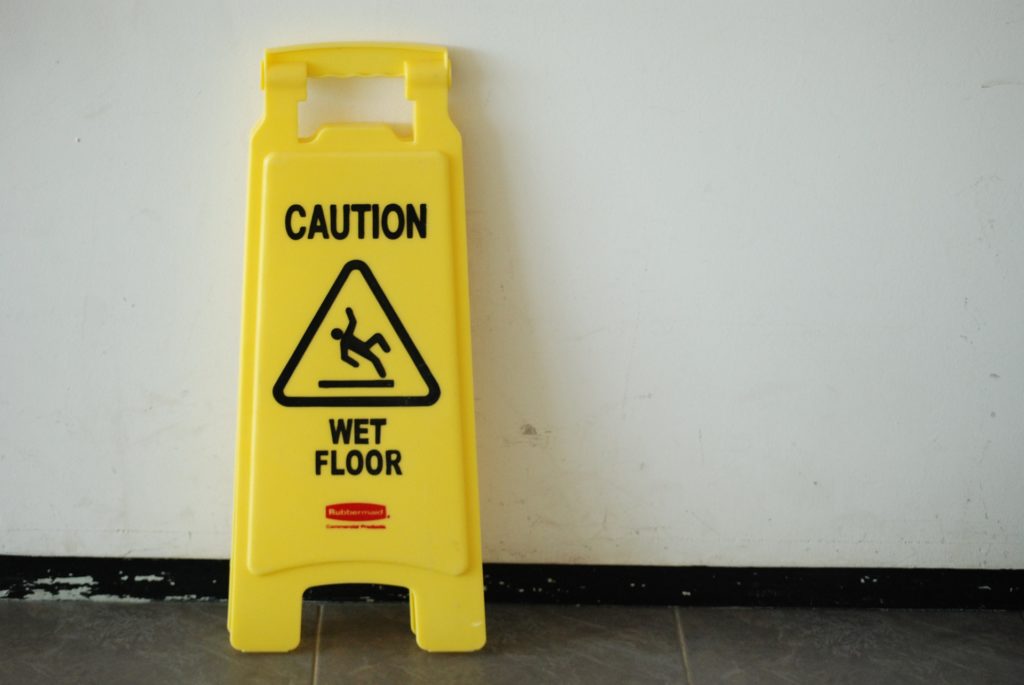In personal injury cases, figuring out who was at fault for an accident will depend on the definition of legal negligence. So, how exactly is negligence determined legally? There are four main elements that help determine negligence in personal injury claims and lawsuits:
- Duty of care
- Breach of duty
- Causation
- Damages
Not every personal injury case will involve discussions around these four elements. Proving fault isn’t always required if the cause of the accident is obvious. Although these terms may not come up in your case, understanding them can help you gain insight. These terms can help explain how your case might work and the methods of determining negligence.
How Negligence is Determined With Duty of Care
The first element that helps determine negligence is duty of care. Duty of care is a party’s legal obligation to avoid causing injury to another. In most circumstances, all people have a duty of care to others. But there’s often some ambiguity around who owes duty of care and it’s scope.
Some cases are challenging to determine negligence because of the lack of laws addressing the duty of care. For instance, a business may only be required to exercise “reasonable” care toward customers to ensure they’re safe from injury. For example, regular maintenance and cleaning of the business property. However, the specific nature of “regular” maintenance may be unclear. The steps that staff took to mitigate risk of injury may be deemed reasonable in the event of an accident. Especially without specific guidelines in place.
When People Breach Their Duty of Care
Once a duty of care is determined, the next step in determining negligence is to figure out whether the person who owed the duty of care breached that duty. If it’s determined that a breach of duty of care took place, resulting in an accident and subsequent injuries, the person responsible would be found “negligent”. In other words, the responsible party would have created a dangerous situation by neglecting to take actions that most people would be expected to take under the same circumstances.
It can be easy to determine if a breach of duty of care took place in many instances. One example would be when a person is driving and runs a stop sign. Neglecting to stop at the sign before continuing through the intersection, resulting in an accident, would mean that the person was responsible for the accident by failing to follow that sign. Witnesses of the accident may be able to support this claim, confirming that the negligent driver caused the accident.
In other cases, it might be more challenging to identify a breach of duty of care. Certain circumstances may have led the driver to make a “reasonable” decision to violate the stop sign in the first example, such as an immediate perceived threat to the driver that distracted and distressed him or her while approaching the intersection, or a medical condition that rendered the driver momentarily unconscious.
Showing Causation
Causation, in legal terms, is the relationship between cause and effect. In other words, did someone’s actions cause the harmful event from which you sustained injuries? In personal injury cases, you must prove causation. It’s not enough to show that the defendant was negligent. The negligence must be what caused the complainant’s injuries.
So, after proving that a breach of duty of care occurred and caused the accident, the claimant will have shown that the person was legally responsible for the injuries sustained. In some cases, the party accused of negligence may claim that even if he or she were negligent, this negligence wasn’t the direct cause of the accident. To prove a lack of causation, the defending party may try to prove that the claimant shared responsibility for the accident by also practicing negligence.
Calculating Damages
Damages in personal injury cases are the measurable physical and emotional injuries that victims sustained. Plus, any lost wages and property damage resulting from an accident. The damages will be the means of figuring out how much the case is worth. And the amount of compensation a claimant can make in a settlement.
Damages split into two groups: general and special damages. While general damages pertain to the suffering that the victim experienced as a result of the accident, such as physical and emotional pain, special damages involve the financial losses that the victim endured, which are easier to value monetarily. Some examples of special damages are: cost of medical treatment, ambulance transportation, physical therapy, and medical equipment like crutches or a wheelchair.
Related: How Special Damages Work in Personal Injury Cases
How Negligence is Determined with the help of Lawyers
Want to learn more about the claims process and how negligence is determined in a personal injury case? It’s best to speak with a reputable and experienced personal injury lawyer before filing a claim. In a free consultation, you’ll be able to discuss your case, the damages involved, and potential grounds for proving negligence in an accident. Get a free case evaluation from a lawyer at Kinney, Fernandez, and Boire today.



